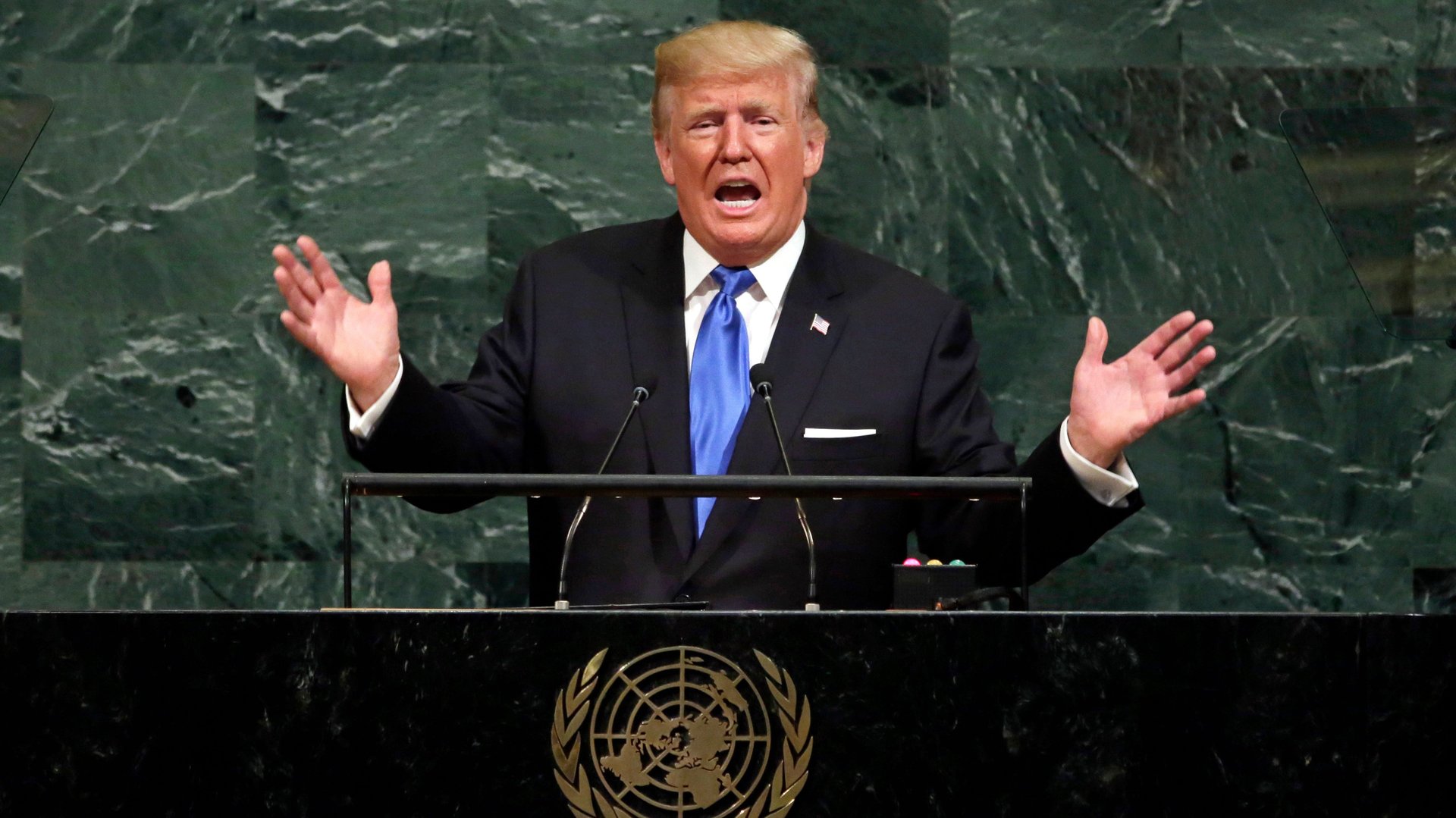In the crisis with Iran, the US started it—twice
It bears reminding that the US is the original aggressor in the current conflict with Iran.


It bears reminding that the US is the original aggressor in the current conflict with Iran.
First, a little background: In 2015, a half-century of tensions began to soften when the Obama administration, against many odds, struck a deal with Iran. The UK, France, Germany, Russia, and China (hardly the most agreeable bunch) all signed on as well. The US and its allies would lift economic sanctions, and Iran would halt any nefarious nuclear production. For a brief shining moment, the world felt a little more peaceful.
Then the US elected Donald Trump and everything went back to the way it was. The president reinstated sanctions, violating and effectively canceling the Iran deal. Trump’s actions sparked a series of back-and-forth microaggressions that taken together have brought the two countries to the edge of war. It all got particularly serious last weekend when Yemeni rebels, aligned with Iran and almost certainly with its help, launched sophisticated drone strikes on Saudi Arabia’s oil fields. Now the Pentagon is drawing up military responses.
Breaching the Iran deal, however, was just the latest US betrayal of Iran. The original sin took place in 1953, when the CIA organized a coup against Iran’s democratically elected leader, Mohammad Mosaddegh. The popular prime minister had nationalized the country’s oil industry, wresting control of it from British petroleum companies. The response was hardly proportional.
The US helped the country’s king centralize power. His reign was marked by corruption and the crushing of political dissent. That behavior sparked the Iranian Revolution, which led to the rise of the Islamic Republic. The US and Iran have jostled ever since.
There will be a chance to ease tensions next week when the leaders of both countries attend the UN General Assembly in New York. (Sign up for a special-edition Quartz newsletter covering it.) But as with that CIA-backed coup of 1953, withdrawing from the Iran deal has empowered Iran’s hardliners and marginalized its moderates.
The fastest way to end this would be for Trump to swallow his pride and adhere to the 2015 deal. That, however, seems unlikely.
This essay was originally published in the weekend edition of the Quartz Daily Brief newsletter. Sign up for it here.